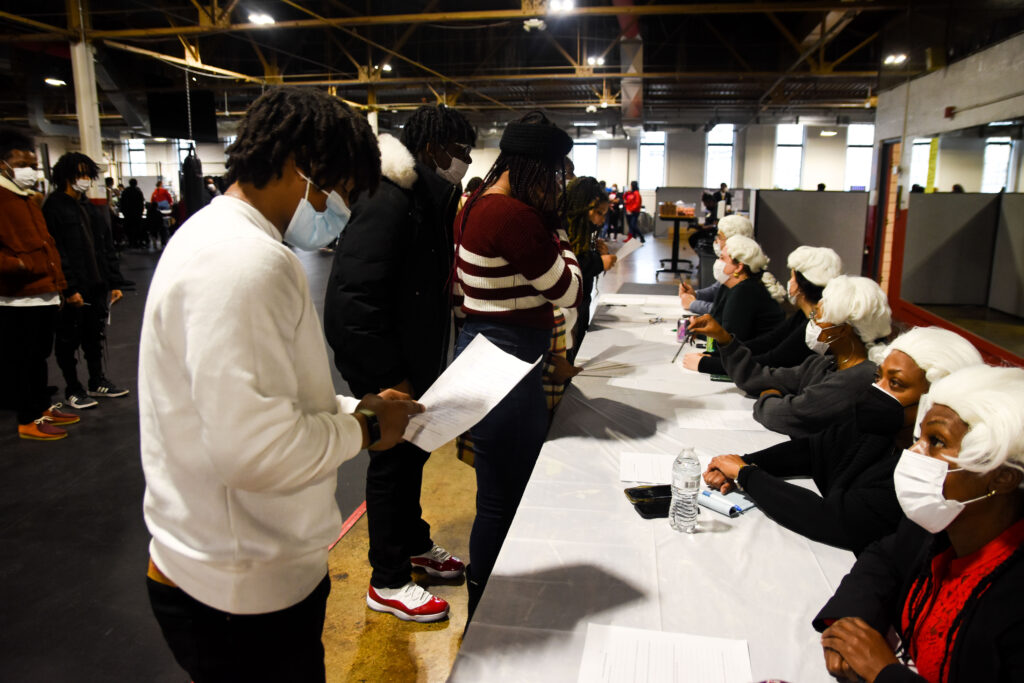
Youth voice drives our work and everything we do at the Downtown Boxing Gym. It’s the way we operate each and every day. In that spirit, more than 100 students of all grades from elementary school to high school gathered on Martin Luther King day to participate in a legislative day of learning dubbed ‘DBG’s Great Debate.’ Everyone had the chance to lobby for changes to official DBG rules or propose new initiatives.
The gym floor became the ‘Congress’ floor for the day, staff members assembled as the ‘Senate’ and ‘House of Representatives,’ and everything was up for debate.
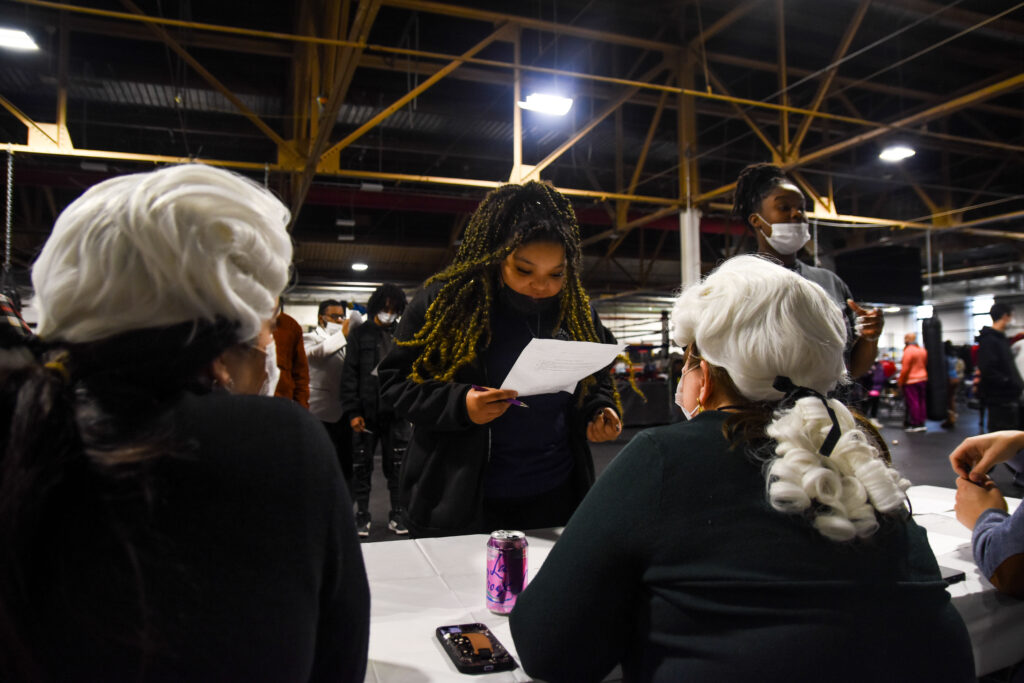
“I saw the kids all come together and turn complaints into solutions,” said Asiyah Williamson, DBG’s associate director of athletics, who organized the program. “They learned how to advocate for themselves and understand the legislative process.”
The students were divided into three cohorts with peers their own age to experience lawmaking firsthand. First, each student presented a proposed rule change – or “bill” – to the ‘House of Representatives.’ The House was composed of six DBG staff members. After receiving feedback, they revised their bills in groups – known as the ‘student congress’ – until each cohort settled on one single bill to present to the ‘Senate’ at the end of the day.
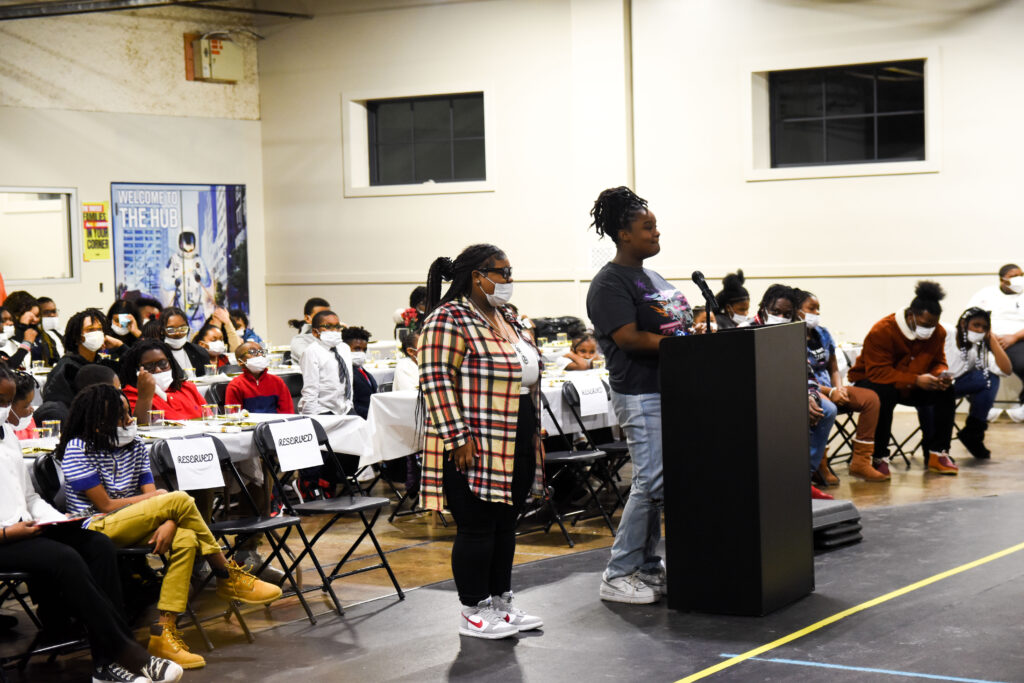
There was a lot riding on that final presentation. Somebody’s bill would be passed. Student-drafted rules or ideas would become law.
Presiding over the Senate were four members of the DBG team including founder and CEO Khali Sweeney, executive director Jessica Hauser, DBG alum Asia Williams, and Literacy and Data Coordinator Skylar Burkhardt. The students came before them with a variety of proposals and ideas to enhance the extensive programming and daily learning that takes place at DBG.
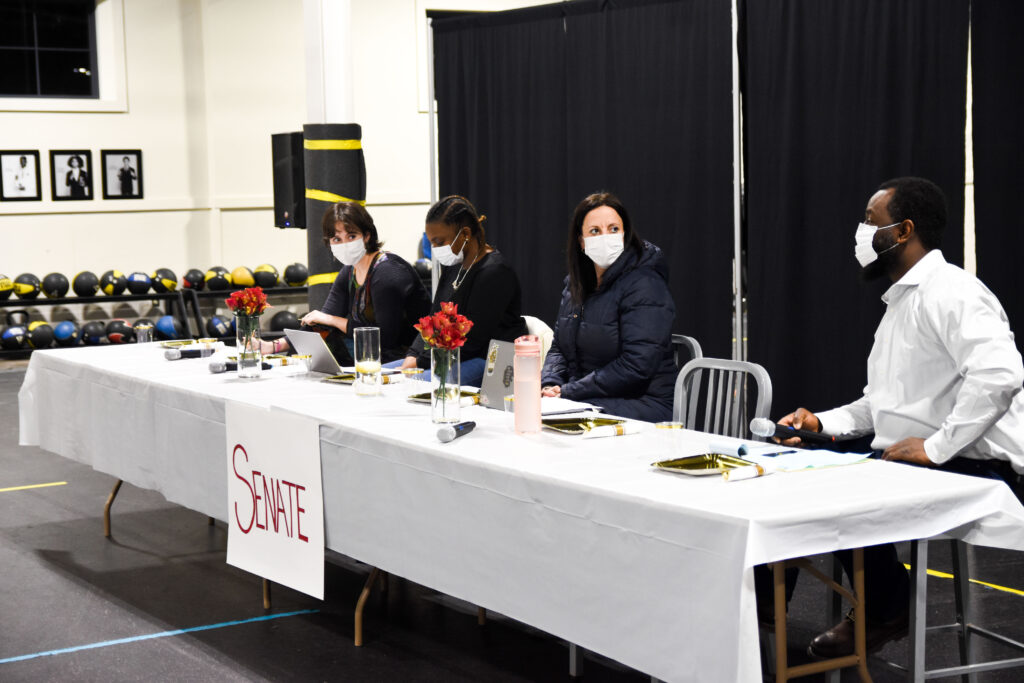
One amazing bill that was accepted as a law was presented by two middle schoolers Marc and Uriel. Marketed as sustainable and innovative, they shared an idea to grow their own healthy food in a greenhouse.
“At first I felt nervous,” Marc said. “But once I got the courage to stand up for what I believed in, it really moved me.”
Uriel, who grew up gardening with her mother and at their church, said it would be a privilege to continue the tradition at DBG.
“I feel like [gardening] gives me an opportunity to embody what Dr. King stood for,” Uriel explained. “Caring for others and giving back to the community.”
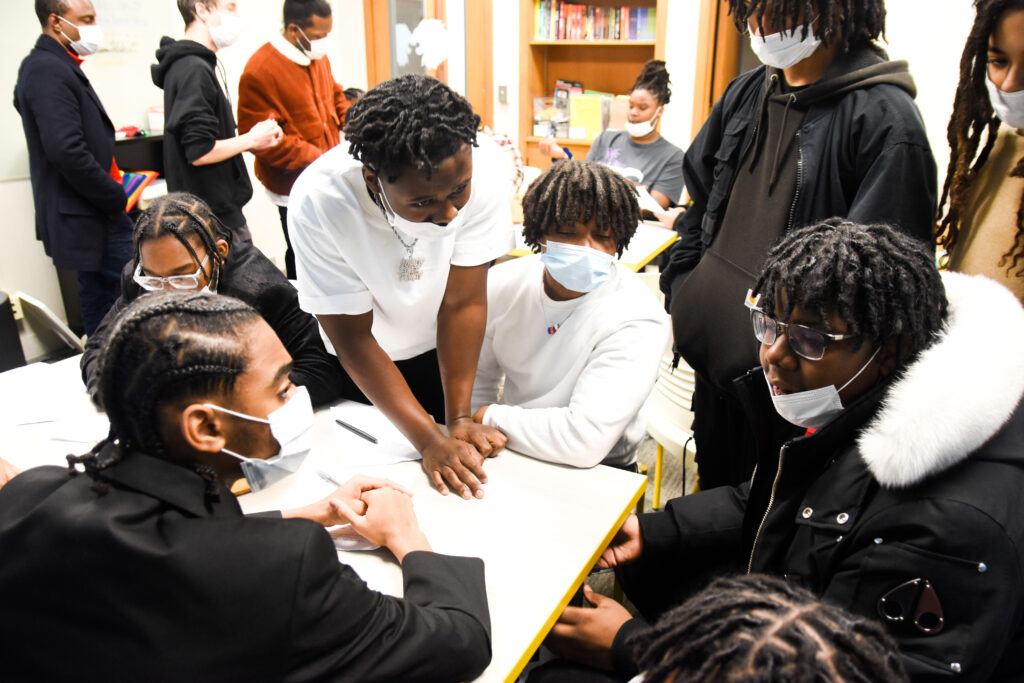
The kids recognize they are the ones who will carry on Dr. King’s legacy nearly 54 years after his untimely death.
“It meant a lot to the students to present their ideas directly to the executive team,” said Williamson. “I think it just says a lot about the power of your voice. That was one of the biggest things I wanted them to take away from this day – that their voice matters and they do have the ability to drive change. That’s why youth voice is always lifted up at DBG, this was one more opportunity.”
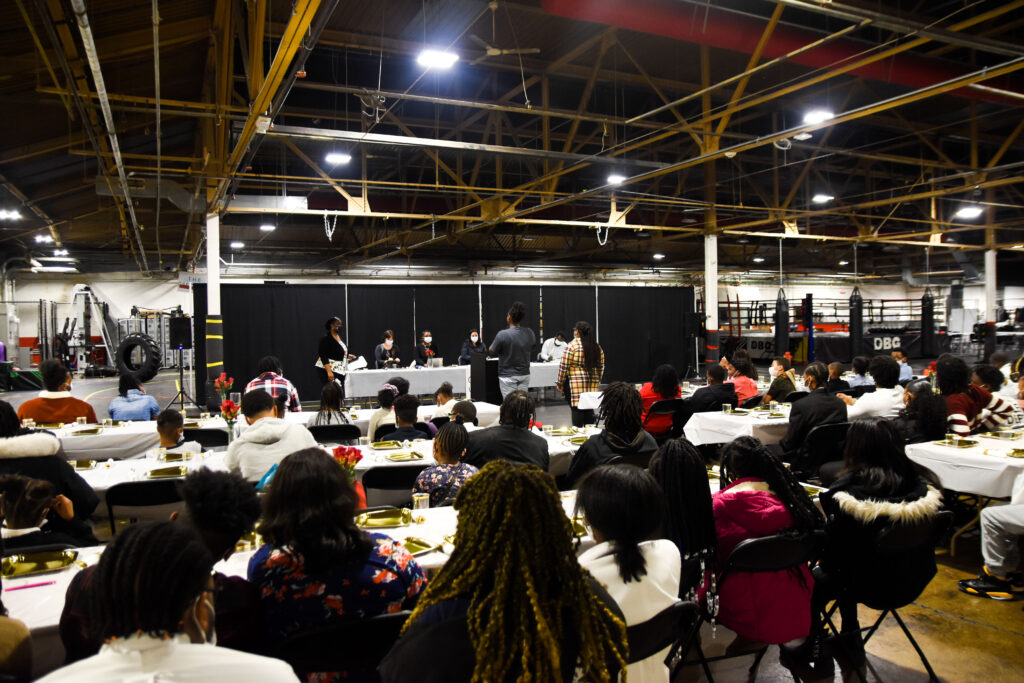
On hand to help out throughout the day were seventeen volunteers from Target, including Kiel Eldridge who frequently volunteers as a youth mentor.
“To be able to work with the kids, it warms my heart,” he said. “They are the future.”
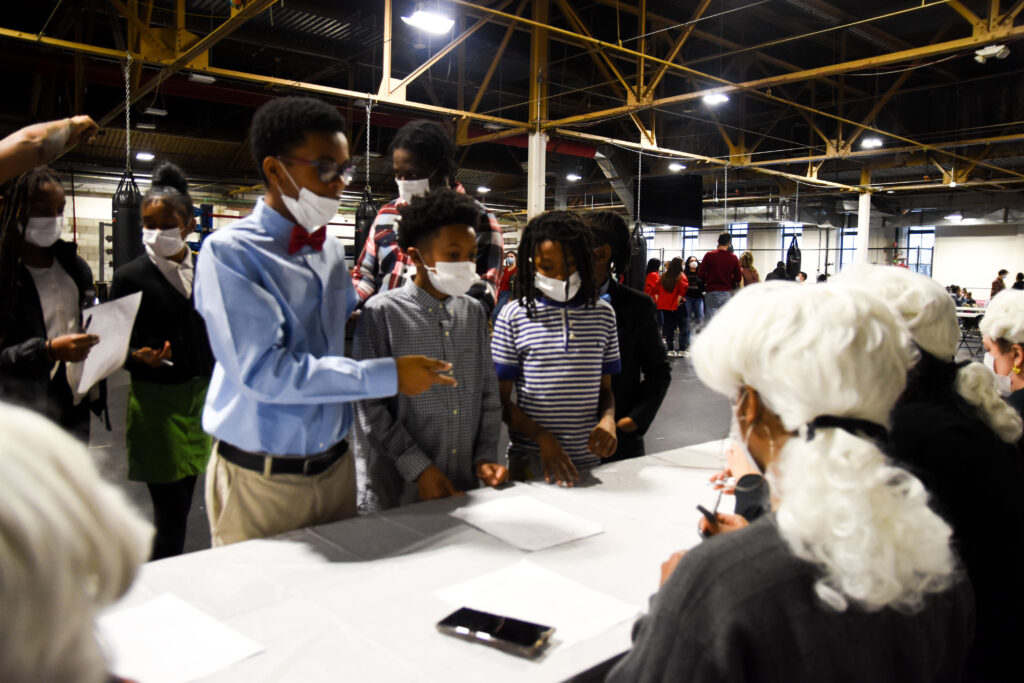
In the end, four student bills were chosen to become laws. High school students proposed exploring even more career opportunities including social media influencers. Middle schoolers wanted to focus even more on sustainability including growing and selling their own food. Elementary students asked for more activities with their parents, and another student idea – to add language classes at DBG – was also approved. The students are working on a few final amendments that will be completed in the coming weeks.
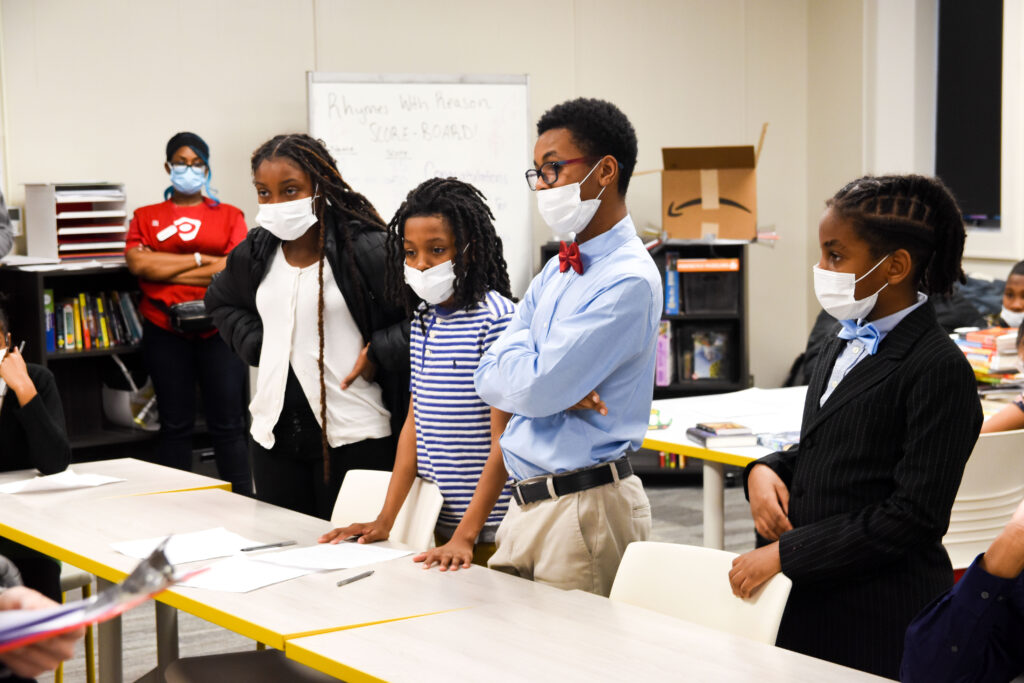
“This day showed us how driven our students are to go deeper on topics that matter to them and to push themselves further,” Khali said. “They took this opportunity seriously from the moment we presented it, when they drafted their ideas, while they were debating and collaborating with their peers, even by dressing in business attire for their presentations. It was a powerful statement they made for themselves, and they taught us what’s most important to them. They taught us. Young people can teach us every single day – if we all just take the time to listen.”
